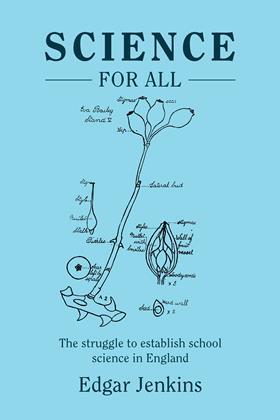Successful curriculum reform depends on teachers’ ownership of their work
Some months ago, I was talking with a young teacher who, five years earlier, had left his job to teach chemistry at a secondary school. Like many others, he’d found the change difficult and the first couple of years particularly challenging and exhausting. Now, more confident and successful in his role, he confessed that he ‘still didn’t own the GCSE chemistry curriculum’. I assumed that he meant he had still to familiarise himself thoroughly with the demands of teaching GCSE chemistry. Apart from thinking that wanting to ‘own’ a curriculum was a strange turn of phrase, I attached no other significance to it at the time.
Only later did it occur to me that a sense of ‘owning’ a curriculum involves much more than familiarity. Something that is owned is valued. It gives the owner the responsibility for maintaining and improving quality that lies at the heart of what it means to be a professional. In the 1960s, it was school teachers who initiated and thus ‘owned’ the reforms associated with the Nuffield Foundation. They produced the ideas, apparatus and examinations that were trialled and then offered for consideration by their colleagues.
Producing a statutory curriculum that gives teachers the necessary sense of ownership of their work is not an easy matter
The Certificate of Secondary Education (CSE) introduced in 1965 allowed teachers unprecedented freedom to devise secondary school courses that they judged best met the needs of their pupils and, subject to moderation, to set and mark the related examinations. Placing responsibility for curriculum reform on the shoulders of practising teachers lay at the heart of the Secondary science curriculum review of the 1980s. The review set up working groups of teachers across the country and supported them in developing materials appropriate to the particular circumstances in which they found themselves working.
Aside from consultation, teachers played only a marginal role in devising the national curriculum. Introduced in 1989, chemistry teachers were presented with a prescribed statutory curriculum that needed almost immediate and drastic revision and was never fully implemented. In the 1991 version of the national curriculum, the approach to teaching the ‘Scientific Investigation’ attainment target (Sc1), caused all science teachers particular difficulty.
It is important to ask why all of these approaches to curriculum reform fell short, each in a different way, of the desired outcome. Science teaching is a complex undertaking and not all attempts at reform have successfully accommodated the reality of teachers’ day-to-day work and their professional priorities. History and experience also suggest that the provision of training courses, advice and support materials is rarely sufficient to effect major and lasting changes in the way teachers work.

Many secondary school chemistry teachers used the excellent apparatus and materials provided by the Nuffield Science Teaching Project while failing to deploy them in ways that reflected the desired approach based on investigative practical work. Sc1 was used by chemistry teachers as a discrete component of the national curriculum rather than, as intended, something embedded in the curriculum as a whole. They therefore struggled to give effect to something that seemed to call upon their long-standing commitment to practical work but was radically different from it. As a result, they could not ‘own’ it.
Few would question the desirability of a national science curriculum that offers all students a broad and balanced education, or that teachers should be accountable for their work. However, producing a statutory curriculum that gives teachers the necessary sense of ownership of their work is not an easy matter. This is especially so when assessment has come to play such a dominant and distorting role that teaching to the test can be prioritised over the all-important quality of student learning.
Reflecting in 1995 on his involvement in writing the national curriculum, Paul Black commented that ‘it might have been better if all parties had been able to admit at the outset that they did not really know how to formulate a national curriculum’.1 As the science curriculum once again faces change, successful reform will depend on enabling chemistry teachers and their colleagues to develop a sense of professional ownership of their work in classrooms and laboratories, with all that this implies.
Reflecting in 1995 on his involvement in writing the national curriculum, Paul Black commented that ‘it might have been better if all parties had been able to admit at the outset that they did not really know how to formulate a national curriculum’. As the science curriculum once again faces change, successful reform will depend on enabling chemistry teachers and their colleagues to develop a sense of professional ownership of their work in classrooms and laboratories, with all that this implies.

Edgar Jenkins C.Chem. FRSC is emeritus professor of science education policy at the University of Leeds. His book Science for all: The struggle to establish school science in England was published by UCLIOE Press in February 2019.










No comments yet